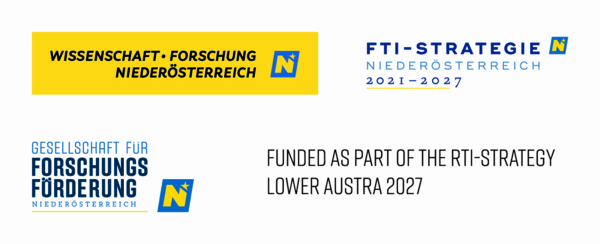Smart Cities and Digital Twins in Lower Austria.
Background
The number of people using digital means to interact with their environment is increasing. This affects individual and community actions and as a consequence agendas, regulations etc. at local, national, and even global levels. A better understanding of such digital interactions and the ways in which they shape public perceptions and behaviours could enable more targeted policy making and more effective action. In theory, authorities are in a strong position to shape public perceptions and induce the necessary changes towards more sustainable behaviour in urban and non-urban environments. In practice, however, these processes are complex and the outcomes unpredictable. Thus, more research on how to translate public perceptions into concrete (smart city) actions is urgently needed.
Project Content
The present project takes stock of existing research on smart cities and digital twins (i.e, digital representation of something that exists or will exist in the tangible world) and adapts it to the situation and conditions in Lower Austria. More precisely, smart city concepts have primarily been applied to very large urban environments so far, but rarely to smaller towns or urban–rural regional sprawls. SCiNDTiLA fills this gap and extends the state of the art of research in several contributing disciplines. It combines complexity theory with computational social science methods to remodel Austrian towns and regions as smart cities/regions. Such models capture complex socio-technical interactions and can therefore guide policy decisions towards sustainable development. The current project’s long-term vision are smart city solutions that use novel governance approaches for managing societal challenges.
Goals
The objectives of the project are:
- Define the state of the art in the field of smart city research with a focus on social/economical/environmental dimensions and aspects of governance. Characteristics that can be transferred to smaller-scale urban and non-urban contexts are identified.
- Develop conceptual framework of sustainable local governance and apply it to use cases of small cities in Lower Austria.
- Develop a digital twin of a sustainable smart city and define different scenarios representing challenges for good governance in smaller-scale urban and non-urban contexts.
- Implement proof of concept use cases in Lower Austria and introduce a roadmap highlighting methodologies, guidelines, and policy recommendations on how smart and sustainable solutions in cities and regions shape inhabitants’ perceptions of local governance.
Methods
Following a design science research approach a smart city is conceptualized as a system (IT artifact) that needs to be evaluated in a given organisational context – in this project, the state of Lower Austria. Such a concept covers the definition of constructs (vocabulary and symbols), models (abstractions and representations), methods (algorithms and practices), and instantiations (implemented and prototype systems). It gives a thorough understanding of the problems (most pressing challenges of local governance in sustainable smart cities) and which solutions are feasible (collaborative/evidence/algorithmic based decision-making processes towards smart solutions for regions, cities, and communities). The project is also based on a novel transdisciplinary process, that helps to organise societal learning processes and define “socially robust” orientations for sustainable development. “Social robust” in this context means scientific state-of-the-art knowledge and best knowledge from science (i.e., experiential wisdom). To make the constraints of the process transparent, uncertainty, shortcomings, lack of knowledge are acknowledged as well. We also organize interdisciplinary roundtables with experts from different fields and moderated multi-stakeholder discourses to identify the most pressing challenges of local governance in sustainable smart cities.
Results
Bringing together city authorities, technology managers, elected representatives, major policy actors and other action groups in local government leaves no one behind, creates a broad knowledge base and enhances the impact of the project. At the beginning stage the participating cities benefit the most, as the local authorities are well informed about the scope and outputs from our research early on. In a next step, we will widen the focus through the collective efforts of the consortium to reach communities of practise across Lower Austria. Specially, regional policy-makers and smart city managers function as proxies for promoting collaborative decision-making and creating an incentive for inhabitants to adopt sustainable solutions. Outcomes of the project will be disseminated to policymakers, smart city networks and city managers across Lower Austria.
You want to know more? Feel free to ask.
Data Intelligence
Research Group
Institute of IT Security Research
Lecturer
Department of Computer Science and Security
- UWK Universität für Weiterbildung Krems (lead)


